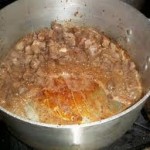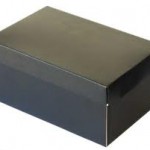 Blood runs along what remains of his left eyebrow. The drop hangs there for an instant and splashes to the ground. Stripped naked, on his knees, he lets his face fall forward into the dirt as the fading chill of early morning blows across his back; a back that more resembles something from a butcher’s shop than a human body. The strong, tanned shoulders of a carpenter are gone. Nothing remains but hanging ribbons of muscle and flesh. On any other early morning he would be carrying great stacks of lumber to his worksite, or carrying loads of fish to the market with his friends. This morning, he can’t even carry the weight of his own body, being drug the last few hundred yards to this place, by a dark-skinned stranger, pressed into service by Caesar’s army.
Blood runs along what remains of his left eyebrow. The drop hangs there for an instant and splashes to the ground. Stripped naked, on his knees, he lets his face fall forward into the dirt as the fading chill of early morning blows across his back; a back that more resembles something from a butcher’s shop than a human body. The strong, tanned shoulders of a carpenter are gone. Nothing remains but hanging ribbons of muscle and flesh. On any other early morning he would be carrying great stacks of lumber to his worksite, or carrying loads of fish to the market with his friends. This morning, he can’t even carry the weight of his own body, being drug the last few hundred yards to this place, by a dark-skinned stranger, pressed into service by Caesar’s army.
In the reprieve of these moments so many thoughts race through his mind. The cool of the garden the night before; the bread and the wine – oh for a sip of that wine here, now; the warm, wet kiss of betrayal; the crowd with their shouts of joy and waving palm branches; the faces of his friends: Peter, with that bushy beard, sunburned face and loud, sailor’s mouth; John, so young, so impulsive, with that unruly cowlick he can never comb into place; Mary Magdalene, she who may best understand him, but who is still so conflicted by her past, her failures, her reputation; and then that other Mary, his mother.
He can see her, tottering about in the kitchen of his childhood home, pulling the hot, black bread from the oven, smiling that knowing smile at him across the table. She is here. He recognizes her cry in the distance, the same suffering cry as when Joseph died, but now even deeper than then. She is not crying for a dead husband. She is a mother crying for a dying son. A quick glance at others in the crowd: The few who mourn for him, the Pharisees and Sanhedrin who gloat over his bleeding body, and the ignorant masses, out this early morning to see the spectacle; dumb, but beautiful sheep, victimized by their circumstances, their poverty and public opinion. There is so much they do not understand.
Dehydrated, exhausted, thirsty – so thirsty – near delirium from shock and blood loss, he prays for just a few more moment’s rest; but there is none. The Roman centurion steps forward, barking orders, cursing the gathering crowd, and kicking at his tormented victim. This is the same soldier who hours earlier, with horsewhip in hand, had reduced this young man to a bloody stump. He must now finish the task. This isn’t cruelty, the soldier explains to his own conscience, an explanation he had tendered many times. This is just a job. Some are farmers; some bakers; some are merchants; some carpenters. I am a soldier. I keep the peace. This is what I do. He had presided over many executions, preserving the Pax Romana, this Roman Peace. Bandits, insurrectionists, terrorists, freedom fighters: Countless such criminals had earned the sharp end of Roman justice.
This isn’t my idea, not my policy. I am just following orders, enforcing the rule of law. This carpenter, this amateur rabbi, this would be messiah, this king of the Jews, whoever or whatever he was (just execution number three on this morning), had apparently refused the way of Roman virtue; thus, he would pay the price. The centurion’s anger, always boiling there, just below the surface returned anew as he picked up the hammer. These seditious Jews can have their king, he thought to himself. But they better pay homage while they can, because here he lies, soon to be fastened to a stick, soon to be dead. There was only one king, as far as this soldier was concerned: The one who pays my salary and whose image is engraved on the handle of my sword.
Let’s get on with it, he says to his fellow executioners. I haven’t had breakfast yet. The cohort works to align two massive beams on the ground beside the crumpled carpenter. They roll him over on his back, his bloody shoulders now pressed against the coarse wood. Flashing through the condemned’s mind, he returns to the carpenter’s shop: I cleaved many a beam, just like these, he recalls. But I never remember the finished product being so rough, so full of splinters. With dreadful skill the legionnaire finds the depression at the front of the wrist. He drives a heavy, square, iron nail through the wrist and between the bones. This prisoner must be nearly dead already, the legionnaire assumes. It takes no one to hold him down. This freedom-fighter has no more fight left in him. Good enough, the legionnaire mumbles, over the sound of his growling belly and the sickening clatter of iron splitting wood and flesh. Quickly he moves to the other side and repeats the action. He is careful not to pull the arms too tightly, but to allow them to flex and move. Arms pulled to tightly will shorten the dying process. Remember boys, this isn’t a mercy killing. On cue, they all laugh and begin lifting the cross into place. Violently it is dropped into a well-worn hole, and the weight of wood, body, and gravity – the weight of the world – bears down on two single nails, two single hands, one single carpenter.
The left foot is now pressed over and against the right. With both feet extended, toes down, a nail is driven through the arch of each, leaving the knees flexed. The centurion, the bulk of his gory work completed, seeks a place to sit, to rest, to eat his breakfast, and dream of going home to Italy, a home with a wife and children; a home with horses and fields of barley; a home he has not seen for many years; a home he protects by killing the enemy here, in this rebellious, God-forsaken province at the edge of the world. Better to fight the enemy at a distance, than in the streets of Rome, he reminds himself. But Oh, to be at home, where I can sleep under clean sheets, eat a kitchen-cooked meal from my own fire, where I can make love to my wife, and tell stories of far away lands to my son and daughter. Would to Jupiter and Mars and all that is holy, that I could get out of this place! Soon. Soon enough; just a few more months.
And yet, the carpenter is dying. He is crucified. As he slowly sags down with more and more weight pulling on the nails in his wrists, excruciating, fiery pain shoots along his fingers and into his arms, exploding in the brain and washing over his entire body. The nails in the wrists are putting pressure on, if not nearly severing, the median nerves. As he pushes himself upward to avoid this stretching torment, he is forced to place his full weight on the nail through his feet. This he cannot stand. The searing agony of the nail tearing through the tissues and nerves between the bones of his feet is too much, far too much. He must collapse, only for the angry outburst of pain in his wrists to begin all over again.
The arms fatigue. Cramps sweep through his muscles, knotting them in relentless, throbbing suffering. The carpenter begins to lose the ability to push himself upward to breathe. He is suffocating; slowly, gradually, in the heat of the now rising sun. He fights to get even one small breath, just one. And with that breath he screams, “Eloi, Eloi, lama sabachthani?” My God…oh dear God…Why? Why have you forsaken me? Finally enough carbon dioxide builds up in his lungs and in his blood stream, partially relieving the cramps. He is now able, sporadically, to push himself upward to exhale and bring tiny bursts of oxygen into his lungs; oxygen that will not save him, that will only prolong his suffering.
For six hours on this Friday – six long, wretched hours – while Roman soldiers eat their bread and dream of home, while his mother wails with a dagger in her own heart, while the crowds laugh and mock, while his friends hide in abject defeat, while the government washes its soft hands clean, while the sky turns black and God himself weeps – the carpenter hangs there, strung between heaven and earth, suffering in hell.
Infinite pain, cycles of twisting and contorting to get a breath, joint-ripping cramps, periods of asphyxiation, searing agony as his lacerated back moves up and down against the rough timber. Then, as if he had any more blood to spill, as if he had any more pain to feel, any more ways to suffer, a bottomless, devastating agony is born deep within his chest. The pericardium of the heart begins to fill with serum. The heart compresses, constricts, and spasms as it drowns in its own fluid. Pushed beyond its limit, the heart can no longer pump the heavy, thick, blood. The tortured lungs, working like panic-stricken bellows, gasp for the last gulps of air. The chill of death, with all its welcomed mercy, crawls across his body. Finally – finally – he can allow his body to die. Over a misshapen, swollen tongue and cracked, bleeding lips he whispers, Tetelestai. It is finished. The carpenter is dead.

